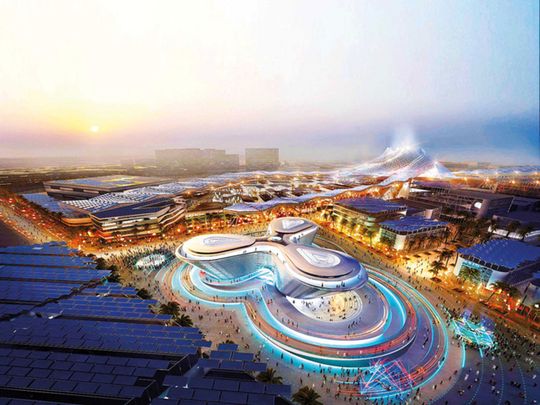
Dubai: Heavy Expo-related bookings at Dubai hotels should happen in another two to three weeks, once new rules allowing visitors to fly in for the event come into effect, according to travel industry sources.
The UAE’s civil aviation regulator recently issued a directive confirming that all Expo-bound exhibitors, their representatives and other visitors will be allowed entry into the country. A spokesperson at a UAE-based travel agency said the new regulation – which provides clear cut directions on who is allowed in - should come into effect in another two to three weeks.
That would then trigger advance bookings for the Expo, which is to kick off its six-month run from October. UAE hotels are already receiving enquiries and booking requests for the event. “We already have quite a few bookings,’’ said Akshay Bajaj, General Manager at Five Hotels and Resorts.
Five is not alone – other hotel chains too are reporting a clear burst of activity linked to stays during the Expo duration. Raed Kai, Director of Sales and Marketing at Ritz-Carlton (Dubai), said the hotel was receiving enquiries from corporate, groups and event organisers.
According to Colliers International, once the Expo gets cracking, UAE hotels will recover to around 62 per cent occupancy on average for this year. The highest occupancy will be for hotels in Dubai Marina and JBR market (69 per cent).
Keep those numbers up
UAE’s hotels are coming off a blockbuster couple of week, boosted by the long Eid break and the re-opening up of travel corridors, with some properties touching occupancy levels in the upper 90 per cent. In June, Abu Dhabi’s hotels reported their highest occupancy since the start of the pandemic in March 2020, according to the consultancy STR. Occupancy stood at 68.5 per cent, while average daily rate (ADR) was Dh320.
According to Five’s Bajaj, “We enjoyed tremendous domestic demand over the summer, which has compensated for travel restrictions from key source markets India, Saudi Arabia and the UK. We are optimistic as the vaccination and testing protocols will eventually ease restrictions completely and result in a massive influx of tourists again.”
The site lists hotel operators on a subscription basis and showcases Abu Dhabi’s hotels and tourist attractions. It counts Noukhada Adventure Company - which offers kayaking in Abu Dhabi’s eastern mangroves – as one of its launch partners.
Welcome to the World’s clientele includes the historic Qasr Al Hosn, operated by Abu Dhabi’s Department of Culture and Tourism (DCT). “We're also in talks with Tourism 365', and basically working on the international visibility of Abu Dhabi,” said Martie Daems, Managing Partner for Welcome to The UAE.
In June, Abu Dhabi’s events and exhibitions company ADNEC launched Tourism 365 to support travel opportunities for tourists. Traditionally, the emirate has relied mostly on domestic markets to keep its hotels full. That should change now.
Daems, citing tourism industry participants, said that while domestic demand has supported Abu Dhabi over the last year, residents are tired of staycations and want to head abroad. This means the emirate will need international travelers to generate tourism revenue.
Last month, Abu Dhabi’s hotels reported their highest occupancy since the start of the pandemic. “The absolute occupancy level was the highest for any month in Abu Dhabi since February 2020, while the absolute RevPAR (Revenue per available room) was the market’s highest since February 2021,” said hospitality consultancy STR in a report.
Buoyant domestic
Domestic tourism has been the force lifting UAE’s hospitality industry since the pandemic halted normal flight operations last year. Staycation drive by UAE residents helped hotel occupancy rise from 35 per cent in July 2020 to 58 per cent in May 2021. (Hotel occupancy in Dubai peaked in December last (69 per cent) and in January (66 per cent).)
“Dubai started the year at peak performance because it remained open while most of the world was in lockdown,” said Philip Wooller, STR’s Area Director Middle East & Africa. “With the relative safety of the emirate at that time, the resulting demand influx drove occupancy and ADR (average daily rates) to levels unseen since the pandemic. A portion of that demand remained for the next few months until some travel was allowed again.”
Come October, UAE’s hotel industry will be aiming for a repeat performance.








